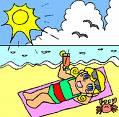В помощь учителю.Кому-нибудь еще это интересно.
Скачать:
Предварительный просмотр:
Phonetics:
- A cup of coffee from a copper coffee-pot.
- 2. She sells sea-shells on the sea-shore.
- A big blue bucket of blue-berries.
- Pleased to meet you.
- 5. Extremes meet.
- 6. Bill’s sister sings well.
- One, two, three / Let me see / Who likes coffee / and who likes tea. One, two, three / Oh, I see / You like coffee / And I like tea.
- Please, Steve and Pete, eat meat and green beans.
- He speaks Chinese and Japanese with equal ease.
- Pete drinks whiskey, Jean drinks gin.
- A black cat catching a fat rat.
12. A fat man clapping his hands is Pat’s Dad.
- If you, Andy, Have two candies, give one candy to Sandy, Andy.
- Ed will never get the better of Ted.
- Success went to Ned’s head.
- Ted had Dad’s hat on his head.
- . Can you imagine that? Success went to Pat’s head.
- Polly wants her coffee strong.
19. Dolly wants an office job.
- New Lords, new laws.
- Of all the saws I ever saw / I never saw a saw / saw as this saw saws.
- Bert will be thirteen next birthday.
- Repeat the verse word for word.
- An earl gave Pearl a fur and a circlet of pearls for her thirty-first birthday.
- Paul Thornaby adores Mort Morgan’s daughter Laura.
- Paul and Pearl are on board a ship.
- Gordon and Bert like to walk but they don’t like to work.
- Does the bus run every Monday?
- Margaret and Charles are dancing in the garden under the stars.
- A book about woodwork? What about “Woodwork for beginners?” by Peter Bull?
- Ruth can’t say boo to a goose.
Предварительный просмотр:
PHONETICS
CONSONANTS
- Barbara is a beautiful blonde with bright blue eyes.
- Barbara’s baby brother Bobby is bouncing a big blue ball.
- Pretty Polly Perkins has a pair of pretty plaits.
- Pat peeps at Pip playing the piano.
- Dan’s Dad is a good driver.
- Diana is the daughter of the Duke of Dundas.
- It’s a great idea to go to a language school in August.
- I have a couple of cups of coffee to keep me awake.
- Ken catches Kate and kisses her quickly.
- Three grey geese in a green field grazing // Grey were the geese and green was the grazing.
- An immense mammoth in the museum at Memphis.
- Martha always makes a mountain out of a molehill.
- No doubt Nicholas knows Nigel.
- Henry hands his nephew Nigel a brand-new pound note on Sundays.
- There is nothing like listening to birds singing spring songs.
- Ray King was recording a song called “Bells Are Ringing”.
- Seven evil devils have no virtue.
- Vivienne is vivacious and full of nerve.
- It’s Philip’s fourth birthday on Friday.
- That’s funny. Philip is fifteen.
- wrong; whole; who; wrist; wrap
- William is worried about woodworm in the woodwork of his wardrobe.
- I wonder what’s worrying Willy?
- Whether the weather is good // Whether the weather is bad // We’ll weather the weather // Whatever the weather.
- The busy bees are flying over the roses.
- Swan swam over the sea // Swim, swan, swim // Swan swam back again // Well swum, swan!
- She sells seashells on the seashore // The shells that she sells are seashore shells, I’m sure.
- Charles is a cheerful chicken farmer.
- John Jones junior is a joyful gentleman who likes jokes and jam.
- I measure from top of my head to my toes // I measure my arms starting here by the nose // I measure my legs and I measure me all // I measure to see if I am growing tall.
- A small pool lying on a low hill on a large island in a lovely lake.
- Ladies and gentlemen, on your left you will see the Lumley Castle.
- Sorry, wrong number.
- The librarian reports that three hundred readers used the library reading-room in the period from February to April.
- The third Thursday of this month is the sixteenth.
- There are three brothers. These are their father and mother. This is their other brother.
- hour; honest; honour; rhyme; forehead; where; what; when
- Humpty-Dumpty sat on a wall // Humpty-Dumpty had a great fall // All the King’s horses and all the King’s men // Couldn’t put Humpty-Dumpty together again.
Предварительный просмотр:
Phonetics 11_2
- I dare swear there’s Mary down there.
- Mary is scared of fairies in the dairy.
- Can you hear clearly from here?
- The theatre is near here.
- I don’t suppose you know Rose.
- John won’t go home alone, so Joe goes home with John.
- Just outside the town, to the south, is Louwater House.
- When in doubt, leave it out.
- A train waiting at a railway station on a grey rainy day.
- James plays with trains and planes.
- Diana decides she would like to dine with Clive and arrives on time, but politely declines the white wine.
- What kind of noise annoys an oyster? – A noisy noise annoys an oyster.
- Smile a while and while you smile, others will smile and there’ll be miles of smiles.
- Roy and Mike are fine but noisy boys.
По теме: методические разработки, презентации и конспекты
- Мне нравится
Vet – wet

–
veal —
wheel

—
vine –
wine
Fail
–
veil –
whale
Ex.3
Practise saying the tongue twisters.
-
I
feel fit as a fiddle.
-
F
ight
fire with fire. -
They’ve
arrived at five. -
I’ve
never forgiven Vera. -
We’ll
walk whatever the weather. -
Walter
always knows what’s what. -
We
wonder, whether the wether will weather the weather, or whether the
weather the wether will kill?
Ex.4
Find 12 words beginning or ending with [f] or [v]. The words are
written horizontally or vertically.
-
D
C
L
A
U
G
H
I
R
O
W
S
A
V
E
F
I
U
I
L
F
I
V
E
V
G
F
I
H
A
V
E
E
H
E
V
G
O
L
F
O
F
F
E
S
A
F
E
E
Fan
van wife’s wives
x.5
Complete the conversation using words from the box. (A37)
Ex.6
Add one of these sounds to the start of these words to make
other words: [f], [v] or [w]. Think of sounds, not spelling.
-
air
________________ -
ear
_______________ -
eel
_______________ -
eyes
______________ -
or
________________ -
old
_______________ -
eat
_______________ -
aid
_______________ -
all
________________
Ex
7.
Practise this dialogue.
A
walk in the woods
Gwen:
Did you meet Victor on Wednesday, Wendy?
Wendy:
Yes, we went for a walk in the woods near the railway.
Gwen:
Wasn’t it cold on Wednesday?
W
Yes. It was very cold and wet. We wore warm clothes and walked
quickly to keep warm.
Gwen:
It’s lovely and quiet in the woods.
Wendy:
Yes. Further away from the railway it was
very
quiet, and there
were
wild squirrels everywhere. We counted twenty squirrels.
Gwen:
How wonderful! Twenty squirrels! And did you take lunch with
you?
Wendy:
Yes. About twelve we had veal sandwiches and sweet white wine,
and
we watched the squirrels. It was a very nice walk.
Vowels:
[3:]
To
make the sound [3:]:
Round your lips. Put your tongue forward and up a little. It is a
long sound.
Ex
8.
Listen and repeat the words paying special attention to the sound
[3:].
four
– fur

– worm
walk
– work
bed
– bird

– colonel
shut
– shirt

bun
– burn
gull
– girl
Ex.9
Practise saying the tongue twisters.
-
C
ertainly,
sir. -
Repeat
the verse, word for word. -
What
a hurly-burly girl Urse is! -
The
girl heard the nurse work.
Ex.10
Practise the dialogue.
T
worst nurse
Sir
Herbert: Nurse!
Colonel
Burton: Nurse! I’m thirsty!
Sir
Herbert: Nurse! My head hurts!
Colonel
Burton: NURSE!
Sir
Herbert: Curse these nurses!
Colonel
Burton: Nurse Sherman always wears such dirty shirts.
Sir
Herbert: And such short skirts.
Colonel
Burton: She never arrives at work early.
Sir
Herbert: She and … er… Nurse Turner weren’t at work on
Thursday,
were they?
Colonel
Burton: No, they weren’t.
Sir
Herbert: Nurse Sherman is the worst nurse in the hospital,
isn’t she?
Colonel
Burton: No, she isn’t. She’s the worst nurse in the world!!!
Stress
In Longer Words
Ex.11
Use the beginnings and endings to make longer words from the
words below.
EXAMPLE
child childhood,
childish, childishness, childless
-
believe
___________________________ -
enjoy
____________________________ -
care
_____________________________ -
friend
____________________________ -
happy
____________________________ -
help
______________________________
E
population
telecommunication nation identification relation
communication pronunciation scientific clinic
romantic
pessimistic
investigation public discussion
x.12
Write the words from the box in the correct part of the table
according to their stress pattern.
|
Oo |
|
|
oOo |
|
|
ooOo |
population |
|
oooOo |
|
|
ooooOo |
|
|
oooooOo |
Ex.13
Fill the gaps with the word from the box which has the stress
pattern given.
Listen and check. (B53)
biology
mathematics history geography sociology chemistry
My
favourite subjects at school were sciences, especially Ooo
_chemistry_
and oOoo ____________. I’ve always been good with numbers, so I was
good at oOo ______________. I didn’t really like the social science
subjects, like ooOoo _____________ and Oo __________, and that’s
strange because when I went to university I did Ooo ___________.
Ex.14
Write in the word which is missing from the ‘family’. Listen,
check and repeat. (B54)
EXAMPLE
society, sociology_
(ooOoo), sociological
-
civil,
civilize, ____________ (oooOo) -
________
(oOoo), biologist, biological -
personal,
___________ (ooOoo), personalize -
legal,
legalize, __________ (oooOo) -
_________
(Oo), authority, authorize
Emphatic
Constructions
Most
sentences have a definite intonation pattern, but in a live
conversation, speakers can choose to put the stress in any place.
This is like underlining
words in writing; we do this to put emphasis on words.
Ex.15
Read this conversation. Which words the speaker will ‘underline’
for emphasis and underline them in the text. You are told which lines
have no underlining. Listen and check (C41)
A:
I won’t pass. (no underline)
B:
You will
pass.
A
pass.
B:
I don’t know. (no underline)
A:
You won’t fail.
B:
I might fail.
A:
I will fail.
B:
The exam’s not hard. (no underline)
A:
It’s very hard.
B:
But not too hard.
A:
Too hard for me.
B:
But you’re very clever! (no underline)
A:
You’re the clever one.
B:
Yes, I suppose you’re right.
The
speaker may emphasize the new information in the sentence. Listen to
these two short conversations. A’s question shows that she doesn’t
know anything about where B comes from. C’s question shows that she
knows he comes from India, so when B says ‘South India’, he
underlines ‘South’ because this is added information. (C44)
A:
Where are you from?
B:
South India.
C:
Which part of India are you from?
B:
South India.
Ex.16
The answers to the pairs of questions are the same, but the
speaker puts stress on a different word in each answer. Read the
questions and underline the words the speaker will put stress on.
Then listen and check. (C46)
EXAMPLE:
a) What’s your name? b) What’s your full name, Ms Vettori?
Clara
Vettori.
Clara
Vettori.
1. a) Do you live
in Milan? b) Do you live near Milan?
Near Milan,
yes. Near Milan, yes.
2. a) What do you
do? b) What kind of designer are you?
I’m a
graphic designer. I’m a graphic
designer.
3. a) Do you have
your own home? b) Do you have a nice flat?
Yes, a very
nice flat. Yes, a very nice flat.
4. a) What do you
do in the evenings? b) Do you speak French?
Well, I’m
learning French. Well, I’m learning French.
5. a) Do you know
London? b) You lived in London, didn’t
you?
Yes, I lived
there for a year. Yes, I lived there for a year.
6. a) Do you have
brothers or sisters? b) You have brothers, don’t you?
Yes, two
brothers. Yes, two brothers.
7. a) What kind of
music do you like? b) Which do you prefer, jazz or
classical?
I like jazz and classical.
I like jazz and classical.
Ex.17
The sentences in the contexts are the same, but with different
pronunciation. You will hear each sentence twice, once for context a
and once for context b.
Listen and decide which you hear first.
(C51)
EXAMPLE
a)
I think that’s my bag. b) I think that’s my
bag.
She’s
not completely sure that it’s her bag. Another
person is picking up her bag
1.
a) Is that your phone? b) Is that your phone?
He
can hear an electronic sound from He can see
somebody’s mobile phone on the seat.
someone’s
pocket.
2.
a) Is your seat 29 F? b) Is your seat 29 F?
She’s
not sure she heard the number correctly. She’s not sure
she heard the letter correctly.
3.
a) Is there a bank in this terminal? b) Is there a bank in this
terminal?
He
knows there is a bank in the other terminal but He’s looking
for a bank.
not
if there is one in this terminal.
4.
a) Where’s the women’s toilet? b) Where’s the women’s
toilet?
She’s
looking for the toilet. She can
see the men’s toilet, but not the women’s.
The
word we choose to underline can change the meaning of our sentence.
Listen to these sentences in two different ways and see the different
meanings in the pictures. (C54)
Do
you want the hamburger with chips, or salad? Do you want the
hamburger with chips or salad?
or
or
+
Would
you like chicken with vegetables, Would you
like chicken with vegetables
or
Russian salad?
or Russian salad?
or
or
+
Ex.18
Listen. Which choice is the waiter offering first: a or b? Write
a-b or b-a.
(С57)
-
Would
you like peaches or strawberries with cream?
a.
+
or
b.
or
-
Would
you like tea with lemon or milk?
a.
or
b.
or
-
Would
you like sausage or bacon and eggs?
a.
or
b.
or
+
Letters
and sounds
Consonants:
[Ө
– ð]
To
make the sound [Ө]:
Put your tongue between your teeth. Blow the air out between your
tongue and your top teeth
To
make the sound [ð]:
Follow
the instructions above, use your voice.
Ex.1
Listen and repeat.
[Ө]
earth
thanks birthday maths
athlete
author
thought
[ð]
weather
clothes breathe sunbathe
together
feather
mother and father
Ex.2
Listen and repeat the words paying special attention to sounds
[Ө
– ð].
mouse
— mouth

— thumb

— thick
tree
—
free
— three
tin
-fin
— thin

– bathe
close
— clothe
breeze
— breathe
Ex.3
Practise saying the tongue twisters.
-
A
thousand thanks to you both.
-
I
have a thousand and one things to ask you.
-
I
can think of six thin things,
Six
thin things. Can you?
Yes,
I can think of six thin things

of six thick things, too.
-
This
fish and that fish
This
fish has a thin fin,
That
fish has a fat fin,
This
fish is a fish
That
has a thinner fin than that fish.
Ex.4
Think of a computer which people speak into and it writes what
they say. This computer wrote these sentences down wrongly. Correct
the underlined mistakes.
EXAMPLE
It’s free
o’clock. __three___
-
A bat
is more relaxing than a shower. _________ -
The train went
true
the tunnel. ___________ -
Don’t walk on
the ice; it’s very fin.
_________ -
You need a sick
coat in winter. __________ -
I don’t know; I
haven’t fought
about it. __________ -
It’s a matter
of life and deaf.
__________
Ex.5
Find a way from Start to Finish. You may pass a square only if
the word in it has the sound [Ө].
You can move horizontally or vertically only.
S
|
north |
northern |
either |
weather |
breathe |
those |
|
south |
bath |
bathe |
thought |
breath |
youth |
|
southern |
third |
their |
through |
though |
thumb |
|
Thailand |
cloth |
path |
fifth |
with |
worth |
|
month |
clothes |
these |
brother |
that |
teeth |
|
throw |
thing |
author |
other |
they |
wealth |
Finish
E
Earth
Heather brother
neither mothers
brothers
another
together birth
either
x.6
Complete the rhyme using words from the box. Then listen and
check (A82).
Arthur had a
__brother
___
They wanted was a _______________.
And he didn’t
want _another
_.
So Arthur’s mother ________________
And of the
brothers, __________ Got them both
___________________.
Wanted sisters _______________.
And told them all good _____________
The last thing on this _____________
Should learn to share their ___________.
Vowels:
[ә]
To
make the sound [ә]:
This is a neutral sound, your tongue and lips should be relaxed.
In
words with two or more syllables, at least one syllable is weak (not
stressed). In weak syllables English speakers pronounce the neutral
sound [ә].
Ex
7.
Listen and repeat the phrases which have the neutral sound.
a
photograph of Barbara
ә
photәgraph әf Barbәrә
a
glass of water 
glass әf watә
a
pair of binoculars

pair әf binoculәs
a
photograph of her 
photәgraph әf hә
mother
and father mothә
әnd fathә
a
book about 
book әbout
South
America South
әmericә
Listen
to these examples and repeat them. The weak vowels in the unstressed
syllables in bold
are pronounced [ә]
(A29)
Weak A: away
banana
woman
sugar
Weak E: garden
paper
under
Weak O: police
doctor
correct
Weak U: support
figure
colour
Ex
8.
Listen to the phrases and sentences, in each of them there are
two vowels which are not
neutral. Underline
them. (A32)
EXAMPLE
an apple
and a banana
-
from
Canada to China -
The
parrot was asleep. -
The
cinema was open. -
the
photographer’s assistant -
a
question and an answer -
a
woman and her husband -
a
pasta salad
Weak
vowels in unstressed syllables can also be pronounced as [ı]. Listen
to these examples and repeat them (A30).
Weak A: orange
cabbage
Weak E: dances
wanted
begin
women
Weak I: music
walking
Weak U: lettuce
minute
Ex
9.
Write the words in the correct part of the table. Then listen and
check. (A33)
orange woman return collect
market begin visit asleep salad teaches
needed letter
sofa peaches quarter women
|
vowel |
vowel |
|
woman |
orange |
Ex
10.
Listen and underline
the word you hear. (A34)
-
What
time did the woman/women
arrive? -
Where’s
Kate’s dress/address? -
The
team manager’s/manages
well. -
The
German teacher’s/teaches
English. -
The
weight’s/waiter’s
heavy. -
The
woman dancer’s/dances
fast. -
The
officer’s/office’s
here. -
Take
that away/way. -
What
a nice driver/drive!
10.
The racer’s/races
finished.
Соседние файлы в предмете [НЕСОРТИРОВАННОЕ]
- #
- #
- #
- #
- #
- #
- #
- #
- #
- #
- #
Главная /
Начальные классы /
Иностранный язык
упражнения для фонетической зарядки
Скачать
32 КБ, 590072.doc Автор: Болконская Марина Евгеньевна, 30 Мар 2015
Скачать
23 КБ, 590073.doc Автор: Болконская Марина Евгеньевна, 30 Мар 2015
Скачать
24.5 КБ, 590074.doc Автор: Болконская Марина Евгеньевна, 30 Мар 2015
В помощь учителю.Кому-нибудь еще это интересно.
Автор: Болконская Марина Евгеньевна
Похожие материалы
| Тип | Название материала | Автор | Опубликован |
|---|---|---|---|
| документ | упражнения для фонетической зарядки | Болконская Марина Евгеньевна | 30 Мар 2015 |
| документ | Скороговорки (для фонетической зарядки) | Мирошникова Надежда Валентиновна | 1 Апр 2015 |
| разное | Скороговорки для фонетической зарядки к уроку английского языка. | Благинина Екатерина Александровна | 6 Июн 2015 |
| разное | Статья «Воспитательные возможности фонетической зарядки» | Гузеева Тамара Владимировна | 21 Мар 2015 |
| презентация, документ | Особенности проведения фонетической зарядки в младших классах | Покровская Светлана Викторовна | 30 Мар 2015 |
| разное | Игровые формы проведения фонетической зарядки | Тумченок Елена Алексеевна | 19 Окт 2015 |
| документ | Методические рекомендации к проведению фонетической зарядки, развитию слухового восприятия и коррекции произносительных навыков на общеобразовательных уроках и самоподготовке. | Луц Елена Викторовна | 30 Мар 2015 |
| разное | Методические рекомендации к проведению фонетической зарядки | Булгакова Жанна Васильевна | 15 Дек 2015 |
| разное | Музыка для утренней зарядки | Емельянова Алина Валерьевна | 31 Мар 2015 |
| аудио | для зарядки | Шабурова Марина Вячеславовна | 31 Мар 2015 |
| аудио | Музыка для зарядки | Шульженко Олеся Викторовна | 31 Мар 2015 |
| аудио | для зарядки)) | Вербина Елена Юрьевна | 26 Июн 2015 |
| аудио | для зарядки))) | Вербина Елена Юрьевна | 26 Июн 2015 |
| аудио | песня для зарядки | Емелина Татьяна Сергеевна | 26 Окт 2015 |
| аудио | музыка для зарядки | Барабанщикова Татьяна Николаевна | 9 Ноя 2015 |
| аудио | музыка для зарядки | Барабанщикова Татьяна Николаевна | 9 Ноя 2015 |
| аудио | Музыка для зарядки | Лосинская Татьяна Анатольевна | 5 Фев 2016 |
| аудио | Музыка для зарядки | Лосинская Татьяна Анатольевна | 5 Фев 2016 |
| аудио | Музыка для зарядки | Лосинская Татьяна Анатольевна | 5 Фев 2016 |
| аудио | Музыка для зарядки | Лосинская Татьяна Анатольевна | 5 Фев 2016 |
| аудио | Музыка для зарядки | Лосинская Татьяна Анатольевна | 5 Фев 2016 |
| аудио | Музыка для зарядки | Булаткина Елена Анатольевна | 9 Дек 2015 |
| разное | Комплекс утренней зарядки для детей | Романова Ольга Николаевна | 31 Мар 2015 |
| документ | «Использование презентации для проведения зарядки для глаз» | Кирсанова Ольга Николаевна | 17 Апр 2015 |
| документ | Комплексы упражнений для утренней зарядки | Гатальская Марина Валентиновна | 21 Мар 2015 |
| документ | Комплекс музыкально ритмической зарядки для средней группы №1 | Холина Галина Александровна | 30 Мар 2015 |
| документ | Комплекс музыкально ритмической зарядки для средней группы №1 | Холина Галина Александровна | 30 Мар 2015 |
| документ | Памятка для родителей I (выполнение артикуляционной зарядки) | Фот Анжела Александровна | 21 Мар 2015 |
| документ | Комплекс утренней зарядки для детей раннего возраста. | Карасева Татьяна Николаевна | 30 Мар 2015 |
| документ | Речевые зарядки для 3 класса II отделения | Бородулина Татьяна Сергеевна | 31 Мар 2015 |
| документ | Речевые зарядки для 1 класса II отделения | Бородулина Татьяна Сергеевна | 31 Мар 2015 |
| аудио | Музыка для утренней зарядки | Емельянова Алина Валерьевна | 31 Мар 2015 |
| аудио | Музыка для зарядки до занятий | Владимирова Екатерина Викторовна | 31 Мар 2015 |
| аудио | Музыка для нашей весёлой зарядки | Ольга Николаевна Анисимова | 31 Мар 2015 |
| документ | картотека занимательной зарядки для дошколяток | Смирнова Ольга Ростиславовна | 6 Апр 2015 |
| документ | Начинаем утро с зарядки. | Никитина Светлана Анатольевна | 4 Апр 2015 |
| аудио | Песня для утренней зарядки | Заляева Рамзия Ильдаровна | 5 Апр 2015 |
| документ | ПСИХОЛОГИЧЕСКИЕ ЗАРЯДКИ ДЛЯ ПЕДАГОГОВ ДОУ | Вирясова Марина Николаевна | 31 Мар 2015 |
| документ | Консультация для родителей «Начните день с зарядки» | Анцупова Анжелика Юрьевна | 20 Ноя 2015 |
| аудио | фонограмма для зарядки к творческому уроку | Чураков Андрей Владимирович | 26 Ноя 2015 |





 feel fit as a fiddle.
feel fit as a fiddle.
 ight
ight



 ertainly,
ertainly,























 thousand thanks to you both.
thousand thanks to you both.
